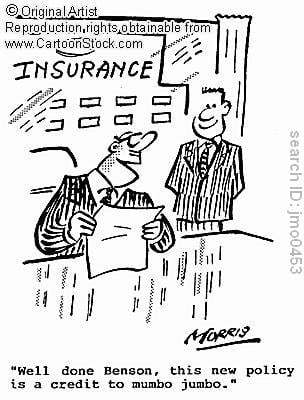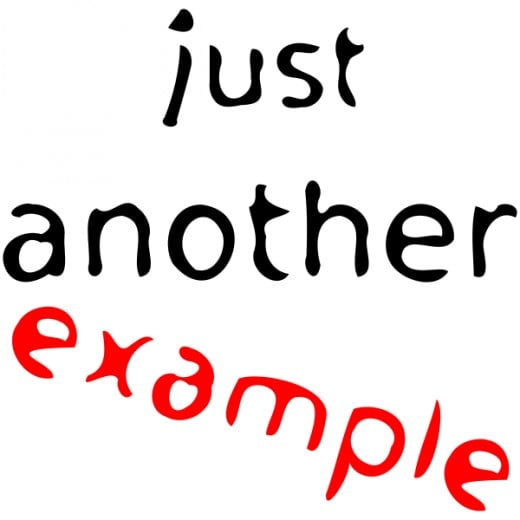Corporate Language, The Inside Scoop
There are two types of corporate speak: The benign lingo and the obnoxious, toxic, asinine, Orwellian, [insert your own expletives here] corporate language. Yes, yes, it is a language in itself, or a dialect at any rate, you learn it like babies learn their native tongues and become better at it as time goes by, and even then, you need higher corporate education (ay!) to understand what's being said half the times. And when you do have higher corporate education, like I do, sometimes you wish you didn't have to understand a word of it, much less speak it.

Corporate language is the only area in my whole corporate experience that I truly dislike. I have serious reservations about the concept of performance, I don't like some of the values that are disguisedly or not so disguisedly promoted, but corporate language is probably the only item in my long list of corporate "issues" that I would completely tear apart and then make illegal. Might as well be tearing apart the foundation of it all, because language is, basically, the foundation of it all. Language determines the way we think, the way we perceive ourselves, and the way others perceive us.

Personal image is also very important in the workplace (anywhere, really), but you can't get around with looks alone, you'll need to speak at some point in your employment (fancy that, eh?), and then the language you use will likely need to be coordinated with the rest of the image you project.
Think, "If you want to be a millionaire, dress like a millionaire," or think, "If you want to be a corporate player, talk like a corporate player". Image and speech, visual and audio, come together to produce a still of each individual that will place them in context to be recognized by the other players.
In the corporate universe, your speech complements your image, so if you "look like it" and "talk like it", it seems like you have half the job done already, right? Wrong. As pretty much with any false appearances, you can only fool the audience for so long. Because that's what corporate language is like, the epitome of false appearances, in a very ample meaning of the term.
You can use the formulas, you can use "the talk", but at any given day on your corporate highway, a patrol car will stop you and will ask for papers. In other words, sometime, someone, will ask you, "what the f**k do you mean by that?" and boy, then you're screwed, because you won't have the first clue what you're talking about, or how to explain it in a humanly comprehensible way.
Formulas

Corporate language is so contaminated with formulas, big words, and general nonsense, that when you actually need to express a genuine thought, you won't know how to begin. You wouldn't believe how thoroughly challenging it is to move around the corporate world without resorting to the used and much abused stereotypes. It'll take anyone wanting to do just that double the time to compose a business case, or an email, or a presentation.
Then again, with enough practice, you can circumvent the expected corporate language, but in my experience this happens only in exchange for building your own, less tarnished, more personal, corporate language dialect.
But all is not lost, small mercies do exist. As I said, there is also a benign variety of corporate speak, which is usually fun and even has the capacity to diffuse tension and create camaraderie among the users and the general public. Most of the times, anyway.
THE BENIGN CORPORATE LINGO

Terms, expressions, even acronyms that are used in a specific company, industry or across corporate land, and that are generally accepted, or can be intuitively understood in context.
- Normal words that are used in specific contexts to mean something different from its original intent, for example: "bandwidth", to refer to the amount of time and/or brain power one has to devote to a certain task; or "firefighting", to refer to addressing issues after the fact, in a reactive manner, when the harm is already done; or "parallel processing", better known today as multi-tasking (I guess you can date me here!), to refer to doing two things at the same time.
- Invented terms to humorously refer to some kind of mess or another, for example: "crapplet", to refer to a poorly coded or badly performing applet; or "iFuck" ('scuse me), to refer to making a big mistake, just kind of cheekily so.
- Fancy acronyms that are short forms of whole sentences, such as ASAP, but rather flashier, like "BENOFTMUE" [ben-ofta-moo], which stands for Big Event No One Foresaw That Messes Up Everything. Crazy, I know, but it exists even though it's a bit in disuse, unlike "SSDD", which is very much in use in the workplace –and elsewhere!
Feel free to post any other funky examples. Some of these terms remain restricted to their original company, others become known and used across one industry, others make it to corporate land at large, and some even become known by all of us, and they integrate into everyday language. They all share one trait: they are mostly inoffensive and, more often than not, quite witty.
Corporate Jargon – Gotta Love It: his is not exactly benign, it's more on the obnoxious side, but it's loads of fun to read.
THE OBNOXIOUS CORPORATE LANGUAGE

I already said quite a bit on this variety of corporate language, but fancy what, I've still more to say. The obnoxious variety of corporate language is meant to distance the speaker from the audience, especially those speakers that are in positions of power, or who think they are.
This variety of corporate gibberish is also meant to confuse and mislead the audience and have them say yes without having the slightest clue to what they are agreeing. Ultimately, this variety, this dialect, is meant to be the tongue of the initiated –you speak it, you are "someone", you don't, baaahhh, who cares about you and what you may have to contribute. Probably nothing, because if you don't even know the language...
The asinine variety of corporate language is often devoid of meaning, it's a bunch of business-like, big sounding words stringed together that don't make any coherent sense whatsoever. But does it take a while and a lot of insight to reach that conclusion!
Asinine examples

Here's an example: "Under the present contingency, if we pursue the premises stated in the report, we can foresee a significant reversal of the trend towards achieving targets in the forecast."
Guesstimate Translation: "The economic climate calls for changes, let's change and we'll very likely sell more stuff than we're selling right now."
And here's another: "The rich and diverse experiences that have brought us here reinforce our structural foundations, and offer a unique market perception regarding the premises we adopted last year."
Guesstimate Translation: "Bingo, we got it right last year with the projections about what would sell well".
One thing in common with these obscure but very realistic sentences is that they sound like truly magnificent achievements, in a way you wouldn't question what they mean upon hearing them. Mission accomplished, then. Whoever pronounced this utter nonsense will feel like he's got the game entirely under control, but I'm still today uncertain whether the root cause of this doubtful satisfaction will be the fact that he knows he speaks fluent nonsense and nobody calls him on it, or the fact that he's a genius in corporate language and plays the game like the best. Or both, maybe.
HEY, MISTER!

There is also a variety of non-obscure corporate language that is still obnoxious because it's plain pedantic. This one I'm sure is used to make it look like one knows what one is talking about, even when they don't have the first clue.
This is the realm of formulas and keywords that just sound right –words that have meaning, but become devoid of it when they are used as a parrot would use "Hey, mister!". This is the realm of words or terms like "synergy", "touch base", "efficiency dynamics", "brainstorm" (most frequent users of this word wouldn't know to conduct a brainstorm with guidelines!), "critical mass" or "reach critical mass", "atomize the issue", "team energy", "targeted focus", "applied objectivity", etcetera.
Mindless idiocy
These words are all in the dictionary, I've nothing against the lot of them, but I take issue with using them mindlessly just because they sound "professional" and business-like. They sound that because corporate language has erected them to that status, not because of what they mean but because of how they sound.
Assume I'm the CEO of a very successful NASDAQ company, and I like to use "bubble economics" in my press conferences. Do you want to bet how long the term will remain my own to become an entry in the corporate language dictionary? t's like I said, talk the talk to look like you know the game. A parrot at least sounds funny.
Here's some parrot like corporate speak: "By leveraging our assets, our processes will gain value-add and we will ensure continued success in this increasingly competitive marketplace."
Could have been: "We need to work together as a team and use what we all know to improve our processes and be competitive."
Here's another parrot like, very frequently used expression: "Can I please get this report ASAP?"
You're wondering what's the problem with this one, yeah? It's plain common English, you're thinking. Not quite. In plain English, "as soon as possible" implies no deadline, it actually explicitly states "do it when it's humanly possible for you to do it," which may be tomorrow or next week. However, in corporate language, "ASAP" is practically always a synonym for "immediately."
So what?
Maybe you think I'm splitting hairs here. I guess I have to, to avoid being swallowed up in the mindless nature of obnoxious corporate speak. Talking the talk seems to equalize all of us business folks, makes it look like we're all of a mind, when there's nothing furthest from the truth. Formulaic corporate language diminishes individuality, makes professionals sound anything but, erases any trace of originality and turns us into droids.
I hear this particular brand of English every day. I understand it for the most part, it took a while to learn and, as with any other language, practice makes perfect, but I just refuse to speak it myself (at least mindlessly!), which, as I said, is quite a challenge if I want to remain "competitive" myself. Oh, what a headache.
This was inspired by a wonderful hub, Do you speak American?, where the great Pam Grundy nailed it down when it comes to language being a fundamental tool for freedom. That article isn't available anymore, but I don't ant to remove the credit.
© 2008 Elena.








